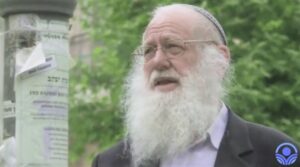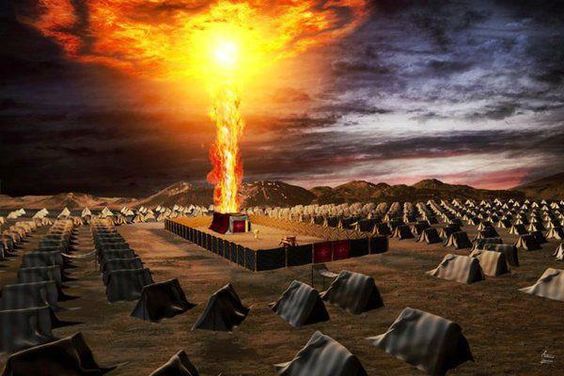Messages for Today
HaRav Dov Begon – Rosh Yeshiva, Machon Meir

Translated by Rabbi Menachem Weinberg
“Restore our judges as at first.”
Moses assembled the entire congregation of Israel by verbally summoning them (see Rashi on Leviticus 35:1). The ability to do so bespeaks the moral/spiritual authority he commanded, rather than any mundane or organizational authority that he could muster. Not only in that generation did Moses assemble all of Israel by employing speech, but throughout history the influence of Moses on the Jewish People has been recognizable. As our sages said:
“In our world, if a mortal prince enacts a decree, whether it will be fulfilled remains to be seen. Yet Moses decreed many decrees and passed many enactments and they continue to endure forever and ever” (Shabbat 30a).
Moses’s speech and influence, which guide us to follow in G-d’s pathways in accordance with the holy Torah, are the strongest influence on the Jewish People’s conduct down through the generations.
Today, we must distinguish between leaders concerned only with the here and now, who are transient and temporary, and the eternal leadership of the Jewish People, which lives and endures forever.
A leadership that ascends to power by mundane means, i.e., by way of political organization of one form or another, has no power to influence and unite the nation in the long-term. Only a spiritual leadership that derives from the strength of our holy Torah, and that showers some of its spirit on the political, practical leadership of the nation will have the strength and ability to unite the Jewish People down through the generations.
The day is not far off when we will be privileged to see how the spiritual leadership and the political leadership will walk hand in hand, as was in the past, during the times of Kings David and Solomon. At that time, the daily request of our prayers will be fulfilled:
“Restore our judges as at the first, and our counselor s as at the beginning, and remove from us sorrow and sighing” (Shemoneh Esreh). This in turn will lead to, “Return in mercy to your city, Jerusalem, and dwell in it as You promised… and speedily establish in it the throne of David” (ibid.)
“I will raise up Jerusalem above my greatest joy.”
Our sages (Berachot 25) teach us by means of the way that Betzalel ben Uri was selected how a communal leader should be chosen, and what characteristics and traits are desirable in a good leader:
“We do not appoint a leader over the public unless the public are first asked their advice, as it says, ‘Moses said to the Israelites: God has selected Betzalel'” (Exodus 35:30).
Later in that source our sages posit the conversation that took place between G-d and Moses:
“G-d asked Moses, ‘Does Betzalel seem worthy to you?’ and Moses responded, ‘Master of the Universe! If you find him worthy, certainly I should.’ G-d then said, ‘Even so, tell Israel.’
“Moses went and asked Israel, ‘Does Betzalel seem worthy to you?’ and they responded, ‘Moses! If both you and G-d find him worthy, surely we do too.'”
Rabbi Avraham Yitzchak Kook, zt”l in his book “Ein Aya” derives from this source that a good and worthy leader has to have three main traits.
First he has to be “pure-hearted”. In other words, he has to be idealistic that all that concerns him is the public good, and he has no personal vested interest. This only G-d knows, for G-d examines what is deep in the heart.
Second, the leader must be wise and full of understanding. He must know how to lead and sustain a community in the complex situations of war and peace. This Moses knew how to do, for he was the greatest of the sages.
Third, the leader must be beloved to the community and the nation, and he must know how to speak to the people, who place their faith in him.
Today, the Jewish People in Israel need a pure-hearted, wise and beloved leader like Betzalel ben Uri, just like they need air to breathe. Rav Kook, less then 100 years ago, foresaw in his wisdom the great national and moral crisis awaiting the Jewish People and the State of Israel if their political leadership is not tied to Torah and the fear of G-d and does not draw on our holy Torah. We see this today, when those holding the reins of leadership talk of their intent to establish for the Arabs, who would steal our land, a state that would endanger our existence. These same leaders talk of dividing Jerusalem, the heart of the nation and the heart of the world. They ignore the proclamation of every Jew: “If I forget you, O Jerusalem, let my right hand lose its cunning. Let my tongue cleave to the roof of my mouth if I do not mention you” (Psalm 137:5-6). They wish to hand over portions of Jerusalem to our enemies.
Rav Kook conceived an idea of establishing a movement to be called “Degel Yerushalayim” – Banner of Jerusalem – whose purpose would be to instill Jewish content in the Jewish state that would arise, encouraging it to be run on the foundations of Jewishness and Torah. The ultimate goal would be to fulfill the vision of the prophets of Israel – to bring light and goodness to the world.
The idea of the need to instill Jewish content in the State of Israel is good and just and wise. The State of Israel without Judaism is like a body without a soul. The call of the hour is to unite all the Jews all across the social spectrum, religious and irreligious, Hareidi and traditional, Right and Left, from all the ethnic communities, and to establish a movement that will set as its goal to strengthen the bond with Jewish tradition and with our roots.
By such means may there arise for us a leadership akin to Betzalel ben Uri, a leadership that is pure-hearted, wise and understanding, and beloved on the nation, a leadership that will rebuild Jerusalem. Then, we shall be the living fulfillment of, “I will raise up Jerusalem above my greatest joy” (Psalm 137:6).
“Hab’riach HaTichon” – The Middle Crossbar — Uniting the Jewish People
“The middle crossbar was made to go through the center of the beams from one end to the other” (Exodus 36:33).
It was the middle crossbar that linked together the Tabernacle beams from one end to the other, while the other four crossbars linked together only portions of the beams.
The middle crossbar ran within the beams and could not be seen from the outside, while the other crossbars could be seen from the outside. This situation serves to allude that what unites the Jewish People from one end to the other like the middle crossbar is precisely something that is hidden, interior, the precious soul of the Jewish People, which is concealed within the whole nation down through the generations, and within every individual Jew, whoever he may be.
Today, we must strengthen that which has united all the parts of the nation down through the generations. That same “middle crossbar” has extended from one end to the other, from our inception as a people until the end of days. It has united all the tribes of Israel from East to West, gathering together in Eretz Yisrael, and all the open and hidden social streams. What has united all the Jews is the fact that we all possess one precious soul, and that we are a people chosen by G-d to perfect the world under the reign of the Almighty. As G-d long ago said to the father of our nation, Abraham: “I will make you into a great nation… You shall become a blessing…. All the families of the earth will be blessed through you” (Genesis 12:2-3).
The middle crossbar is the root of all the nation’s branches. And like the branches on the tree, which all imbibe their sustenance from the root, so let us drink deeply from our roots. Let us unite all the branches and strengthen them.
“G-d will withhold no good thing from those that walk uprightly.”
At the end of the Tabernacle service in the Communion Tent it says, “They brought the Tabernacle to Moses” (Exodus 39:33). And why did they bring it to him? It is because they could not erect it themselves. No human being could erect it because the boards weighed so much that no one could put them upright. Yet Moses succeeded. Moses asked G-d, “How can a human being possibly erect it?” G-d replied, “Go through the motions.” Moses seemed to be erecting it, but it stood erect and rose by itself. This is the meaning of the words, “The Tabernacle was erected” (Exodus 40:17). It arose by itself (see Rashi, ibid.).
Not just with the erection of the Tabernacle in ancient times, so heavy that no man could lift it, did Israel required divine assistance. They also require assistance with establishing their personal Tabernacles, the Jewish family and nation. We are commanded to make a sincere effort, and G-d helps us. We have limited strength, but Omnipotent G-d assists us, as our sages said, “If a person sanctifies himself a little bit, G-d will sanctify him much. The effort he makes here on earth is equaled by what G-d does for him from above” (Yoma 39a).
In our generation, we are busy with the rebuilding of the Third Temple, in three stages, as Rambam wrote:
“Israel were commanded to fulfill three mitzvoth on their entry into the Land: appointing a king for them precedes waging war on Amalek; annihilating the seed of Amalek precedes rebuilding the Temple” (Mishneh Torah, Hilchot Melachim 1:1-2). In all of these stages we need to strive greatly despite the enormous difficulties, and in accordance with our efforts we enjoy divine assistance.
The State of Israel is the beginning of the Kingdom of Israel, at the height of which we will merit the appearance of the Messianic King and the rebuilding of the Temple. Yet the State of Israel is beset by enormous hardships in the shape of struggles and wars with enemies from without and spiritual, moral and social crises from within. Sometimes matters seem as difficult as raising up the Tabernacle boards. Yet we need to follow in the path of Moses, who went through the motions of raising up those heavy boards, while G-d assisted him.
This advice is relevant today every day when every Jew is commanded to raise his hand and participate in the holy undertaking. The work includes: (1) connecting the State of Israel and its citizens to the Torah and to Jewish tradition; (2) strengthening our hold on Eretz Yisrael; (3) strengthening, exalting and unifying the spirit of the Jewish People. Whoever partakes in the strengthening of the Torah, the people and the Land, will be the living fulfillment of the words of David, the Sweet Singer of Israel, “G-d will withhold no good thing from those that walk uprightly” (Psalm 12:12).
Looking forward to complete Salvation.






